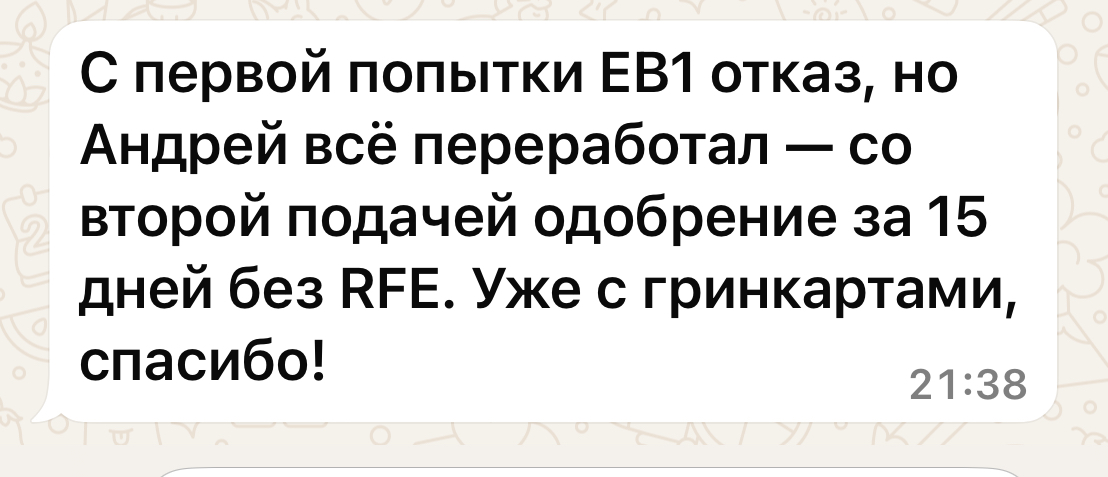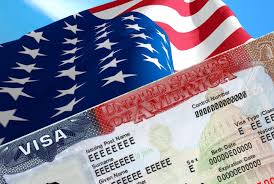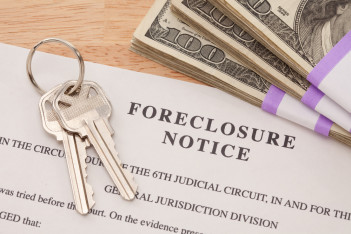Experienced immigration law professional with a proven track record in supporting individuals and families through complex U.S. immigration processes. Currently serving as an Accredited Representative and Paralegal, I specialize in employment- and family-based immigration, humanitarian relief (including TPS, asylum, and VAWA), and removal defense. With a strong foundation in USCIS compliance, legal research, and form preparation (I-140, I-485, I-130, I-129, and others), I provide clients with trusted, up-to-date guidance and compassionate support. My work is driven by a deep commitment to advocacy and community empowerment.
Obtaining an EB-1 Green Card After Denial: A Success Story with Support from Andrei Solodov
In 2024, immigration attorney Andrei Solodov provided comprehensive legal support to a client who was residing in the U.S. on a student visa with his family. The client had previously worked in a major government institution in Russia, specializing in personnel management and team building. The case was initially submitted under the category of a talented entrepreneur but was denied. After a thorough review of the strategy and collection of additional evidence, the petition was resubmitted via premium processing and approved without a Request for Evidence (RFE).
Case Description
The client had substantial experience in human resource management and organizational development within the public sector. After moving to the U.S. with his wife and child on a student visa, he aimed to obtain permanent resident status through the EB-1 visa. The first petition was denied due to insufficient evidence. However, after analyzing the reasons and reinforcing the case with new materials — including publications, memberships in professional associations, and scholarly articles — the petition was approved.
- Assessment of the client’s eligibility according to USCIS requirements for the EB-1 visa.
- Consultations on building a personal brand and documenting professional achievements.
- Gathering additional evidence: publications, association memberships, scholarly articles, and recommendation letters.
- Resubmission of the petition via premium processing and approval without an RFE.
Key Implementation Stages
1. Case Strategy
After the denial of the initial petition, a detailed analysis of the rejection was conducted. The strategy was revised to emphasize the client’s extraordinary abilities in management and organizational development. Key eligibility criteria under EB-1 were identified and addressed.
2. Evidence Preparation
- Collection and preparation of recommendation letters from former colleagues and supervisors confirming leadership and accomplishments.
- Proof of membership in professional associations that require a high level of achievement.
- Publication of scholarly articles in professional journals demonstrating contribution to the field.
- Collection of evidence of awards and professional recognition.
3. Petition Submission
- The petition was submitted through premium processing, enabling a decision within 15 days.
- The petition was approved without a Request for Evidence (RFE), reflecting the high quality of the documentation provided.
Case Results
- The client and his family — wife and child — received U.S. permanent resident status (green cards).
- The entire process — from strategy revision to approval — took less than one calendar month.
- The case became a successful example of adapting strategy after an initial denial.

Frequently Asked Questions
Can I apply for EB-1 without an employer?
Yes. The EB-1A category allows for self-petitioning if you meet at least three out of ten criteria of extraordinary ability.
What should I do if my first petition was denied?
It is crucial to analyze the reasons for denial, strengthen your evidence, and submit a revised petition with an improved strategy.
What status will my family receive?
Your spouse and children under 21 years of age will receive green cards along with the principal applicant.
This case, led by Andrei Solodov, illustrates how a well-developed strategy and professional preparation of evidence can lead to successful approval of an EB-1 green card, even after an initial denial. Attention to detail and legal precision were key factors in the successful outcome.
If you are facing challenges in the immigration process or have received a denial, it is essential to consult with an experienced professional to evaluate your case and develop an effective strategy.

































